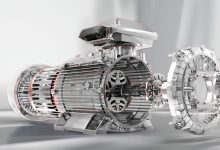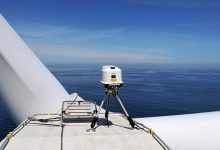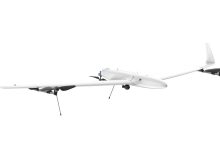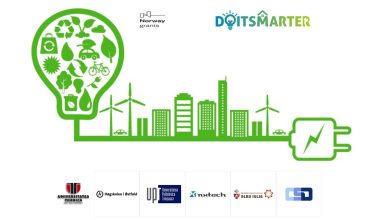Driving to the future
New disruptive technologies and services are rapidly transforming the entire landscape of the automotive industry, a century-old business. From driving to self-driving cars and fossil fuel to electric propulsion, the increasing demand for connected mobility, supported by the ongoing digital revolution, is paving the way to the next level of customer experience.
Conquering the world
The new concepts for the car of the future are spreading all over the world. The global car market is going electric.
Electric cars also gain more and more ground in Europe, last year around 125,000 fully electric units being sold, according to estimates of LMC Automotive. Europeans’ passion for ‘green cars’ will increase in the coming years, so sales will reach 600,000 cars in 2020, and by 2022 their number will reach the one million milestone, according to the analysis of LMC Automotive. The competition of major manufacturers to gain market share in this new segment is becoming more and more fierce, especially as the demands of potential customers are increasingly sophisticated.
Estimates and analyses of car market specialists are very optimistic about the expansion of cars that consume watts instead of fuel to move, especially as consumer confidence in electric cars will increase rapidly as battery prices will fall, their range will increase and charging times will be increasingly short. Currently, Norway, France and Germany are some of the largest markets for electric vehicles.
Plugged, autonomous, jointly used and electric
In the future, mobility will be defined by four concepts – plugged, autonomous, jointly used and electric.
Last year, Renault Zoe and Nissan Leaf were the most sought-after models in Europe, but interest will increase more and more as three famous European brands, Jaguar, Porsche and Audi, will launch electric cars in the coming years.
U.S. manufacturer Tesla will also have a word to say in market architecture, with the launch of its new model – ‘Model 3’, which experts expect to be in 2020 the most sold purely electric model in Europe, with 43,000 units. Model 3 would dethrone Renault Zoe, which will have sales of 31,000 units, the following places following to be held, according to estimates, by BMW i3, with 30,000 units, Nissan Leaf, with 26,000 units, and Volkswagen ID EV, with 20,000 units.
Ford is catching up rapidly
U.S. car manufacturer Ford Motor Co announced that it would increase its investments in electric vehicles to USD 11 billion by 2022, following to provide at the time 40 hybrid and fully electric models.
The figure is significantly higher than investments of USD 4.5 billion by 2020 previously forecasted by the second largest U.S. electric vehicles manufacturer.
According to Ford officials, the company intends to add 16 fully electric models and 24 hybrid models to its global offer by 2022.
GM promises 23 new models
General Motors, Ford’s main rival, has also announced that it planned to introduce at least 20 electric models by 2023. The CEO of General Motors Co, Mary Barra, has made a daring promise to investors, that the car manufacturer from Detroit would make money from selling electric cars by 2021. GM relies on combining the own technology of batteries, a flexible and low-cost design of vehicles and large production, mainly in China.
The company has already managed to launch an electric car whose price is only USD 5,600, considered the cheapest in the world. It has the shape of a box and looks like a Smart for Two from the older generations. The length is only 1,488 mm, the width is 1,506 mm and the height is 1,670 mm. It is provided with an electric engine of 29 kWh and has a declared range of approximately 155 kilometres. The maximum speed is 100 kilometres per hour, and the torque can reach up to 100 Nm. Such a car can be fully charged within seven hours and a half.
BMW, ‘Number One Next’
Germany’s BMW has kept its promise made early last year and delivered in 2017 100,000 hybrid and fully electric cars. Although the target set by the Bavarians seemed at first a venturesome idea, the promise was fulfilled.
Their strategy, called ‘Number One Next’, provides by 2020 the group will launch no less than 25 fully electric and PHEV models, including a fully electric Mini in 2019, an X3 with zero emissions in 2020 and an autonomous and electric production vehicle.
Mercedes-Benz raises the bar
Mercedes-Benz, the main brand of the German car group Daimler, announced on 21 February this year the intention to invest EUR 2.6bn in research and development by 2019, amid efforts to produce series electric trucks starting in 2021. Mercedes-Benz, the main brand of the German group, is currently testing eActros electric trucks with a range of up to 200 kilometres. “In 2018 and 2019, Daimler Trucks will invest, on average, approximately EUR 1.3 billion per year in research and development,” Daimler stated in a press release.
The company mentioned that the focus would be put on the development of electric mobility, connectivity and autonomous driving technology for commercial vehicles. The German group also informed that by 2020 Mercedes-Benz would test trucks equipped with 11 sets of batteries and two engines to see whether the 100% electric vehicles can replace the diesel engine models. The two versions of trucks tested by Mercedes-Benz, with a weight of 18 and 25 tons respectively, will also be made available for a test group of customers during this year.
By 2022, the company plans to electrify its passenger vehicle line-up, offering more than 50 battery-electrics, plug-in hybrids and 48-volt mild hybrids in all sizes and segments. The first Mercedes-Benz EQC series model will come off the line in Bremen, Germany, next year.
Daimler recently said that its profit growth would be dampened this year by spending on new technologies such as autonomous and electric vehicles.
Volkswagen throws in EUR 40 billion
In November, Germany’s Volkswagen announced that it would spend EUR 40 billion for electric vehicles, autonomous vehicles and new mobility services by the end of 2022. Volkswagen expects electric vehicles to conquer the market and wants to create a division exclusively dedicated to electric cars.
The e-mobility division aims to deal only with the development of electric cars and become leader. But for this it needs to dethrone Tesla. Volkswagen wants to reach an annual production of at least 100,000 units under the ID brand. Audi, Seat and Skoda brands are also included here.
For 2025, Volkswagen aims to reach one million electric vehicles sold, and to achieve this goal investments could reach over EUR 10 billion. Volkswagen last year announced that around 2020 it planned to release in the market a compact electric vehicle of with the size of a Golf car with a range of approximately 600 km.
Tesla launches electric trucks
Tesla has also joined the race to launch electric trucks in the market. At the end of last year, the Americans from Tesla presented the model of a large-size electric truck. Tesla Semi truck has a driving range of 800 kilometres when it is “charged at full capacity and has a cruising speed”, Tesla CEO Elon Musk said at the time.
Tesla has not provided details about the costs and manufacturing site of the new model. The company wants to start the series production at the end of 2019.
But Tesla does not stop here, moving to the next level: it wants to use chips capable of using artificial intelligence. Artificial Intelligence is one of the popular domains among major technology companies at this time.
The ambition of Tesla CEO Elon Musk is to give people the possibility, within two years, to sleep in their cars during travel, thus fully eliminating the human factor for driving.
China’s BYD comes with its own socket
The Chinese car manufacturer BYD (‘Build Your Dreams’) is building its own vehicle factory in Morocco, in the city of Tangier, across from France’s Renault factory where Dacia brand is produced.
The Chinese company wants to build in that area electric cars for Europeans. In order to implement the project, estimated at USD 1 billion, the Chinese company has associated with the American billionaire Warren Buffet.
Production is expected to start this year. BYD has already opened the first vehicle factory in Europe, last year, in Hungary, where it invested around EUR 20 million, for the production of electric buses and batteries. BYD has also announced an investment of EUR 10 million in France, also for electric buses.
Overseas, BYD has built an electric bus factory, and in Canada it plans to produce utility vehicles such garbage trucks, also propelled electrically.
In the Chinese market it has a joint venture with Daimler, together with which it produces vehicles under Denza brand.
Faraday claims it outperforms Tesla
In early January this year, China’s Faraday Future announced that it created the fastest electric car in the world, its model FF91 being presented as faster than the Model S of Tesla Motors, during an event in Las Vegas.
The start-up supported by the Chinese billionaire Jia Yueting relies on the contribution of other investors invited at Las Vegas.
FF91 can accelerate from zero to 100 km/h in 2.39 seconds, according to the company. This speed surpassed that of Tesla’s Model S, of 2.5 seconds for the P100D model set in the fastest mode, ‘Ludicrous’.
The 1,050 horsepower of FF91 can provide a range of about 600 km.
Renault’s solution
French manufacturer Renault couldn’t miss this competition. It reviewed upward its profit and sales targets for a medium term, as part of the ‘Drive The Future’ plan, aimed to protect the position in the field of electric vehicles of the French car manufacturer and cope with rival competition in the case of cars without driver.
Renault announced that it planned to register an increase in sales by 44% by 2022, benefiting from the recent investments in Iran, India, and from the recovery of the car market in Russia. The company will launch eight models of 100% electric vehicles and 12 electrified models, in the following six years.
Best-selling cars in 2017
At the level of 2017, the world’s most sold electric car was the Chinese car produced by BAIC EC, produced in China by BAIC Motor (Beijing Automobile Industry Holding Co.). BAIC Motor is currently the car company with the largest market share in China (about 25%), extending its sales to other Asian countries. Owned by Beijing Municipality (through BAIC Group), BAIC Motor has among shareholders Daimler AG, with 10% of the shares. At the same time, BAIC is the company that bought the remains of the Swedish brand Saab, transforming it into an electric car, under the Senova brand. 37,900 cars of the BAIC EC180 series were sold in 2017, most of them delivered on the Chinese market, which this year increased by 50% compared to last year.
The BAIC EC180 model is a very small car, with a length of 3.67 meters, a width of 1.63 meters and a height of 1.51 meters. Built on a cheap platform, with rigid suspension and drum brakes, the car weighs just 1 ton (1,050 kg) and is propelled by an electric engine of 54 kW, which has an instantaneous torque of 180 Nm. Its selling price in China, with the subsidies granted by the state, is approximately EUR 19,000.
The second-best-selling electric car in the world in 2017 was Nissan Leaf, the former leader, the Japanese electric car being the most sold electric vehicle in history, with more than 250,000 units in the seven years since its launch. In the first nine months of 2017, Leaf was sold in 35,700 units, less than the previous year, due to a change of generation. The new Leaf was already launched last autumn and already has very good results.
The third model sold globally is Tesla Model S, the revolutionary car, especially through the dashboard technologies, and the most expensive electric vehicle in the top-selling list.
Pioneering cyber security and safety in automotive industry
Bureau Veritas has been verifying data protection procedures for over 30 years now and offers mechanical and electronic testing across a range of industries. As such, Bureau Veritas is in a strong position to offer inspections for one of the most technologically complex and safety-critical areas of the smart world: connected cars.
Bureau Veritas is responding to a development known as ‘vehicle to everything’, V2X, in which cars communicate with people (V2P), infrastructure (V2I), and other vehicles (V2V) as part of a connected road traffic environment. If this sounds far-off, it’s closer than you might think: General Motors has already launched Cadillacs with V2X radio capability; Volkswagen, Toyota, and Ford are set to follow in 2019/2020. Meanwhile, an alliance of carmakers is developing a 5G LTE standard for the next stage in mobile network technology.
Tomorrow’s connected car will therefore be constantly transmitting and receiving data: safety sensors will communicate with the engine, the driver, and other vehicles. Meanwhile, the car as a whole will share data from a range of devices with the manufacturer, with traffic management networks, and potentially with licensing authorities, maintenance providers, and all manner of other partners. The spread of platform-coordinated car-sharing, as car ownership increasingly gives way to a user-based model, will also mean that entire fleets of vehicles will be sharing detailed data with – and about – thousands of people per car and per lifecycle.
As such, all participants of the automotive value chain, from suppliers of components and carmakers to dealerships and, increasingly, tech companies will need credible proof that safety and compliance have been ensured. Bureau Veritas has already shown itself to be a strong automotive partner to many of them. Working with the U.S. Transport and Environment Authority and Groupe PSA, for instance, it helped to implement a portable emissions measurement system which gathered data about actual fuel consumption from 60 vehicles over 40,000km to provide real-world economy and emissions findings.
Bureau Veritas is expanding on this position in automotive, producing a robust set of guidelines for cybersecurity in connected vehicles and acquiring Silicon Valley-based electrical and electronics TIC (testing, inspection, and certification) body SIEMIC; this complements its existing holding in 7Layers, a German specialist in mobile and wireless certification. Bureau Veritas will be able to add automotive cybersecurity to its existing certification services in the industry, offering whole-vehicle certification as cars become ever more connected – and ever more complex. With an end-to-end cutting-edge offering, Bureau Veritas is strongly placed to service tomorrow’s autonomous vehicles.
IMPACT Connected Car
IMPACT Connected Car is an acceleration programme funded within the framework of INNOSUP, part of the EU’s Framework Programme for Research and Innovation Horizon 2020. It aims to respond to societal and industrial needs in the landscape of the connected car.
The programme closed its first call with over 218 applications coming from 41 countries (164 cities), among which Spain, Poland, Italy and France take the lead.
IMPACT Connected Car supports, connects and funds companies with innovative projects in the fields of wireless chargers, cyber security measures against hackers, smart mobility and zero emission transportation. Not only are these developments important for the continued safety and welfare of citizens and infrastructure, but also this market is expected to represent a EUR 141 billion business opportunity by 2020.
Three-stage smartization programme
The selected start-ups will enter a three-stage smartization programme and will receive up to EUR 60,000 in equity free funding. Top performing companies will have the opportunity to obtain further funding of up to EUR 200,000 from participating venture capital investors.
As in other IMPACT programmes, the entrepreneurs will have access to an international network of more than a hundred recognised mentors, such as Ken Stewart, CEO of Karma Automotive, and Carintia Martinez, Director of Information Systems at Renault, as well as founders and investors who are experts in different key areas of knowledge, both in the digital sector and in the automotive industry.
The selected companies will be showcased at top international events organised over the course of the year by 4YFN and Mobile World Capital Barcelona.
With funding of EUR 2.1 million, IMPACT Connected Car aims to boost SMEs and start-ups innovating and developing smart mobility solutions. The programme provides a direct link between entrepreneurs and large corporations, as well as addresses the fragmentation in the automobile industry, which until now has hindered its digital transformation.
Wrap-up
However, at the North American International Auto Show (January, 2018), the automobile manufacturers reminded the world that while electric might be the future, gas-powered cars have plenty of life left in their tanks.







